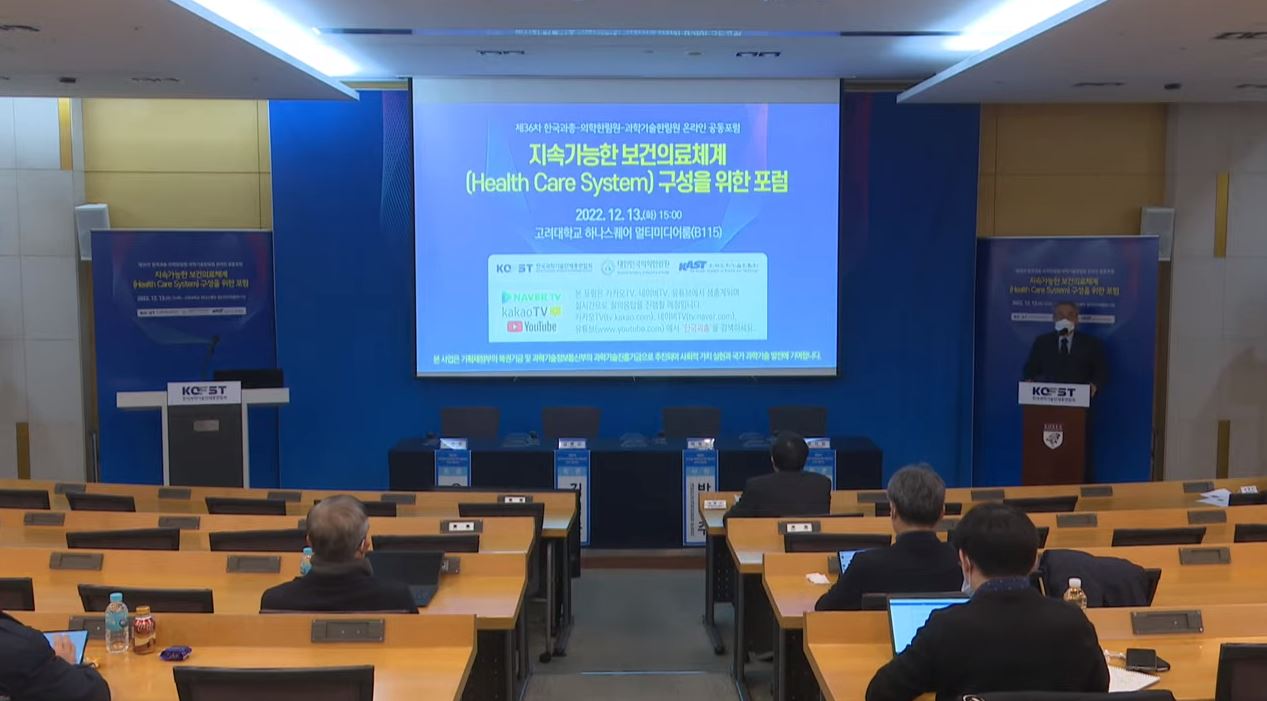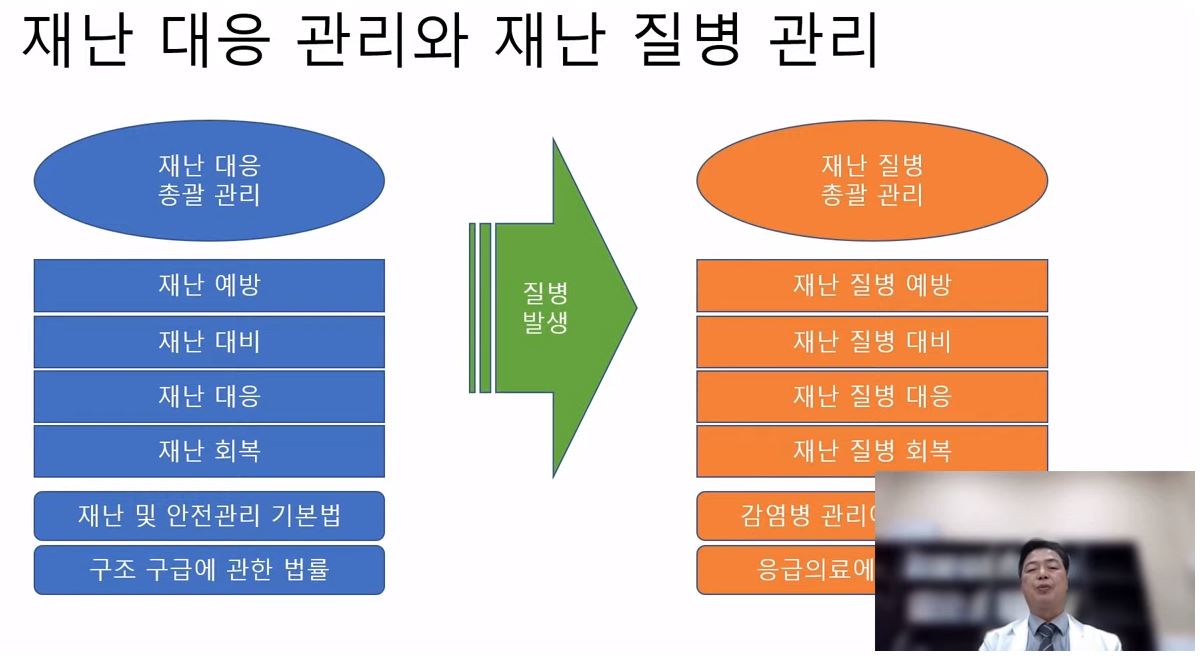
The nation should check its healthcare system before it gets too late to effectively prepare for repeated disastrous infectious diseases, like new influenza, MERS, and Covid-19, experts pointed out Tuesday.
At a joint forum co-hosted by three organizations, including the Korean Federation of Science and Technology Societies (KOFST), participants discussed countermeasures against another pandemic with the theme of a “sustainable healthcare system.”
Lee Jong-ku, chairman of the Covid-19 Special Committee at the National Academy of Medicine of Korea, pointed out that although three years have passed since the outbreak of Covid-19 in Korea in January 2020, the nation’s preparations for infectious diseases remain insufficient.
“In the early phase of the pandemic, Korea responded well by recording a death rate far lower than European countries. However, there still are many areas to worry about, such as the prevention and early detection of infectious diseases and effective responses to them,” Lee said.
Lee noted that the most important thing in establishing a healthcare system is responding to a surge of patients. “Death rate once rose due to difficulty transporting severe patients. So we have to solve the difficult problem of managing severe patients,” he said.
Lee added that because Korea has a neighbor with a huge population, the nation is always exposed to new diseases.
“Nothing can be more crucial than establishing an essential response system against infectious diseases,” he said.
He then cited some case-scientific steps, such as strengthening the general monitoring network in normal times, positively confirming examples, conducting the special examination in response to the spread, and carrying out clinical observation and evaluating them at labs.
Lee also stressed enhancing primary care to prepare for a new pandemic.
“Primary care is not only the first care patients contact but also one where comprehensive care takes place to meet diverse medical demands and a coordinator that refers to other professional care and links to social services,” he said. “The health authorities should maintain a personal primary medical service strategy, vaccinate against infectious diseases, and educate residents by seeking the essence of primary medical care.”
Furthermore, he added that it is essential to establish a people-oriented system that backs up the life support system, including the 24-hour call service, drug delivery, test support, and emergency transfer.

Other experts pointed to the need for institutional support.
“The government developed and distributed a set of detailed guidelines in the course of responding to Covid-19, but I doubt whether they have scientific and legal grounds,” said Professor Shin Sang-do, head of the planning and management office at Seoul National University Hospital. “It needs to enact a law to manage disastrous diseases aimed at managing abruptly surging diseases.”
Shin pointed out that the existing Act to Prevent Infectious Diseases lacks methods to operate the healthcare system during disasters. In addition, the 119 Act also lacks measures concerning infection disaster relief and first aid.
“Disaster medical care occurs when supply falls short of surging medical demand,” he said. “A temporary gap occurs in responding capability when patients surge abruptly. However, even if the disaster medical care period is short, it has grave consequences.”
In reality, Covid-19 caused problems in the emergency medical system of some regions. For example, according to Shin, some general hospitals in the southeastern metropolis of Daegu, where the first mass infections occurred, suspended the operation of their emergency rooms.
“In the initial stage of Covid-19, numerous healthcare systems were suspended, and emergency rooms stopped their service. The problems in operating ERs led to the increased death rate in patients not infected,” he said. “That, in turn, added to relief workload, delaying time to arrive at the scene.”
Pointing out that such a situation affects the survival rate of heart attack patients, Shin said, “There is a growing need for disease management due to the infectious disease disaster,” he added.

